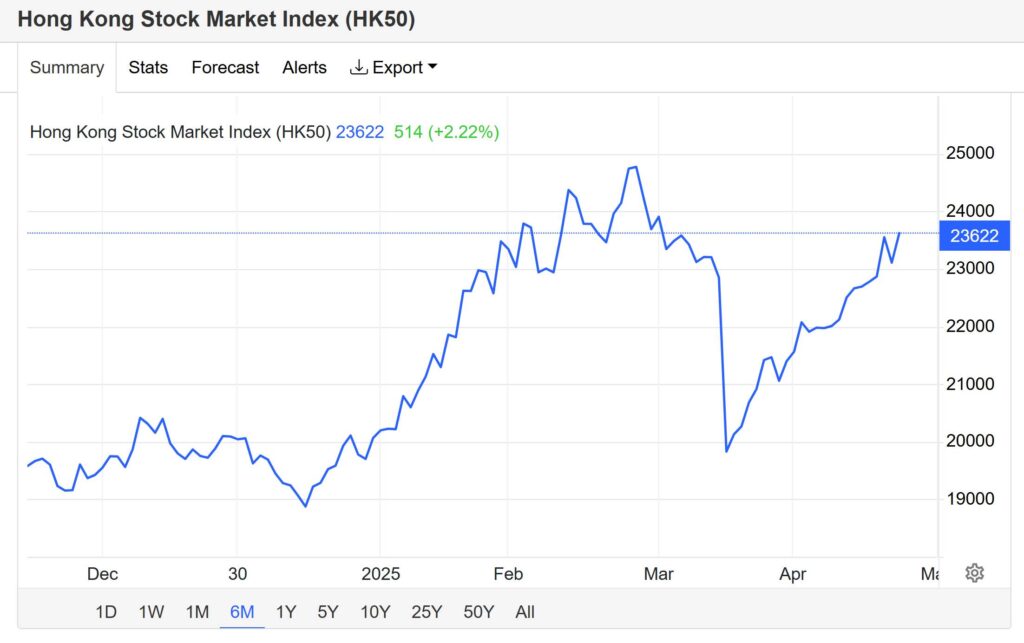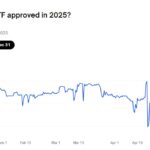In an evolving financial landscape, high-net-worth clients in Asia are shifting their investment strategies as they pivot away from traditional US dollar-based assets. According to UBS Group, a prominent financial services firm, there is a notable trend towards investing in gold, cryptocurrencies, and Chinese assets, spurred by rising geopolitical uncertainties and ongoing market volatility.
During a recent event hosted by Bloomberg in Hong Kong, Amy Lo, the co-head of wealth management for Asia at UBS, highlighted this significant change, stating, “Gold is getting very popular.” This increasing interest in alternative assets reflects a broader desire among investors to diversify their portfolios beyond US-centric assets as they seek safety and growth in turbulent conditions.
“Volatility is definitely here to stay,” Lo remarked, emphasizing the need for clients to rebalance towards perceived safe havens.
Alongside gold, cryptocurrencies are becoming more attractive to Asia’s wealthiest individuals. The pivot comes as China resumes focus for investors who had previously avoided its markets; this renewed interest is partly fueled by Hong Kong’s benchmark index, which has risen sharply in 2024, positioning itself as one of the world’s standout performers this year.
Supporting this trend, the latest fund manager survey from Bank of America revealed that global fund managers have significantly decreased their exposure to the US dollar, reflecting the largest pullback in nearly two decades. Many investors are now on the lookout for promising opportunities in Asian markets.
“We are seeing an emergence of really interesting themes coming back out in China,” stated Christina Au-Yeung, head of Investment Management Services at Morgan Stanley Private Wealth Management Asia.
Adding to the optimism, a recent agreement between the US and China to lower tariffs has sparked renewed interest in cross-border investments. This deal reduces tariffs on Chinese imports from 145% to 30% and American goods from 125% to 10%, paving the way for greater market stability.
Furthermore, analysts at Galaxy Digital have reported that Bitcoin is increasingly being viewed as a digital store of value by institutions and governments alike. This shift in perception places Bitcoin alongside gold in the discussions of alternative assets, as nations diversify their reserves away from the US dollar.
As Asia’s high-net-worth investors navigate these changing tides, the movement towards gold, cryptocurrencies, and Chinese assets signals a significant evolution in investment strategies, responding adeptly to a complex global landscape.
Investment Trends Among High-Net-Worth Clients in Asia
High-net-worth clients in Asia are shifting their investment focus from US dollar-based assets to alternatives like gold, cryptocurrencies, and Chinese investments. This trend is significantly influenced by geopolitical uncertainties and market fluctuations.
- Shift towards Gold and Other Assets:
- Gold has gained popularity as a safe haven investment.
- Investors are diversifying into cryptocurrencies and commodities.
- This shift reflects a move away from traditional US-centric assets.
- Geopolitical and Market Influences:
- Rising geopolitical uncertainties and persistent market volatility are driving changes in investment strategies.
- Investors are looking to rebalance their portfolios towards perceived safe havens.
- Renewed Interest in Chinese Investments:
- There is increasing enthusiasm for China among the ultra-wealthy who were previously hesitant.
- Hong Kong’s stock market has become one of the top performers, attracting more investment interest.
- Global Fund Managers Adjust Strategies:
- Fund managers have heavily reduced exposure to the US dollar, indicating a major pivot in market sentiment.
- This change aligns with a broader trend of diversifying away from US assets.
- Tariff Truce Between US and China:
- A recent tariff reduction agreement has created optimism for investments in China.
- Investors are becoming more aware of risks, leading to calls for balanced portfolio allocations.
- Bitcoin’s Evolving Role:
- Bitcoin is increasingly viewed as a digital store of value, akin to gold.
- Growing interest from institutions and governments suggests Bitcoin’s place in modern financial strategies is solidifying.
As high-net-worth individuals pivot away from US dollar investments, this may encourage a broader diversification of global assets, impacting market dynamics and investment strategies worldwide.
Rising Trends in Wealth Management: Diversification Beyond the Dollar
Recent insights from UBS Group reveal a significant shift among high-net-worth clients in Asia who are moving away from traditional US dollar investments in favor of gold, cryptocurrencies, and Chinese assets. This development is particularly striking given the context of increasing geopolitical uncertainty and persistent market volatility. As financial advisors like Amy Lo emphasize, the pivot towards these alternative asset classes signifies a broader trend of diversification aimed at mitigating risk and harnessing growth opportunities.
When comparing this trend with similar market sentiments, the Bank of America’s latest fund manager survey indicates a notable reduction in exposure to the US dollar—marking the largest underweight position in nearly two decades. This growing skepticism towards the dollar underscores a competitive advantage for assets such as gold and Bitcoin, which are increasingly recognized for their capacity to serve as safe havens during tumultuous economic times. For instance, Galaxy Digital and BlackRock both highlight Bitcoin’s rising stature as a digital store of value, reinforcing that institutional and governmental interest is reshaping how these assets are perceived in the marketplace.
However, while these shifts may provide new opportunities for investors, they can also spell trouble for those heavily invested in traditional US-centric portfolios. Investors who neglect this trend might find themselves at a disadvantage, especially as Asian investors become more open to exploring the Chinese market and cryptocurrencies. Furthermore, the recent US-China tariff truce has reinvigorated interest in Chinese investments, presenting a unique challenge for US-centric financial institutions that may struggle to capture this emerging wave of investment enthusiasm.
As the wealthiest individuals in Asia gravitate toward a more balanced portfolio—encompassing considerable allocations in fixed income, equities, and alternatives—financial service providers must adapt and innovate to meet evolving client expectations. This paradigm shift presents both opportunities and risks, as high-net-worth clients increasingly prioritize diversification strategies that extend well beyond the traditional boundaries set by the US dollar. For investment managers prepared to embrace these changes, the potential to attract a new clientele could be substantial.












